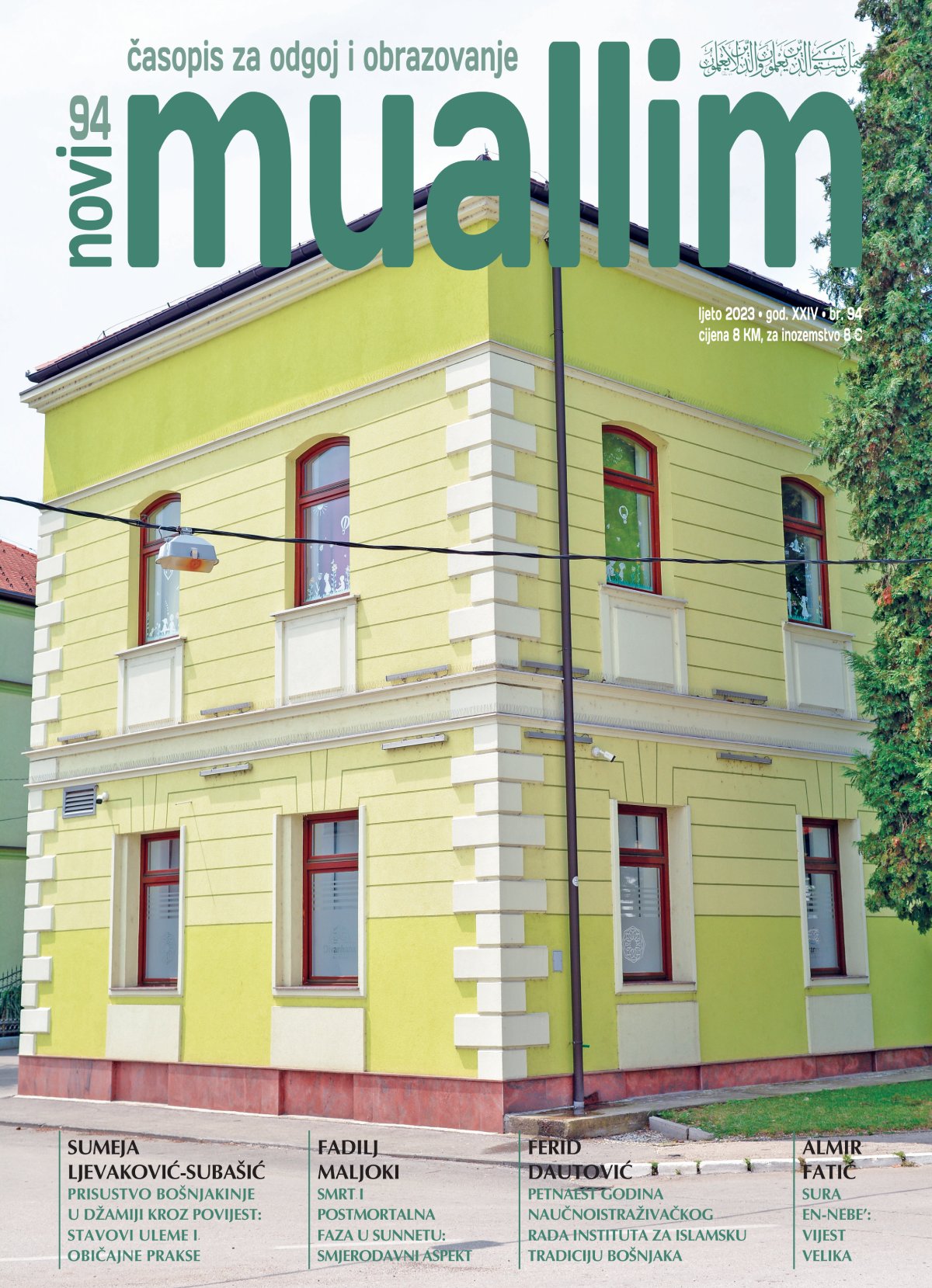MANICHAEISM IN MUSLIM CLASSICAL WRITINGS
DOI:
https://doi.org/10.26340/muallim.v24i94.2031Keywords:
religion, Manichaeism, dualism, eschatological dawn, paradigm, intertextual dialogAbstract
UDK: 254.4(497.6)
The work before us brings a concise review of the classical Muslim perception of Mnichaeism and of the idea of dualism in general. The Muslim intellectual tradition has approached this, as well as other phenomenon of the kind, primarily in, we are not exaggerating to say, an utterly scientific manner. Thus it first presents its knowledge of the phenomenon, analyses it evaluates and makes conclusions about it. Certainly, this implies that the classical Muslim authors did not hesitate to discuss with arguments all the elements that blur the idea of monotheism in these teachings, and so is the case with their reading of Manichaeism. Their method comprised of finding, recognizing and acknowledging what is and what is not in agreement with the monotheistic theological paradigm. The nature of the two principles: the Darkness (aẓ-ẓulmah) and the Light (an-nūr) and the phenomenon of their interaction will be elaborated here in the context of eschatology and the liberation of one from the other. Thus classical Muslim authors have, with a surgical precission, scrutinised each element of what we understand to be the theological teachings of Manichaeism, analysed it, and concluded that this theological model or theological teaching is also in utter contradiction with logic and thus it is in obvious collision with the primordial idea of tawheed.
Downloads
Published
How to Cite
Issue
Section
License

This work is licensed under a Creative Commons Attribution 4.0 International License.
Naknada:
a. Časopis ne naplaćuje naknadu za obradu članaka (APC) i naknadu za podnošenje članaka.
Autori koji objavljuju u ovom časopisu pristaju na sljedeće uvijete:
- Autori zadržavaju autorska prava i pružaju časopisu pravo prvog objavljivanja, pri čemu će rad jednu godinu po objavljivanju biti podložan licenci Creative Commons imenovanje koja omogućuje drugima da dijele rad uz uvijet navođenja autorstva i izvornog objavljivanja u ovom časopisu.
- Autori mogu izraditi zasebne, ugovorne aranžmane za ne-ekskluzivnu distribuciju rada objavljenog u časopisu (npr. postavljanje u institucionalni repozitorij ili objavljivanje u knjizi), uz navođenje da je rad izvorno objavljen u ovom časopisu.


